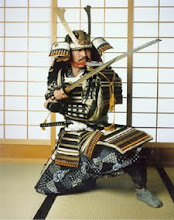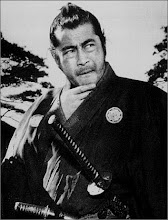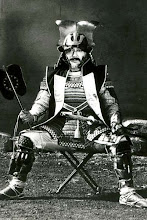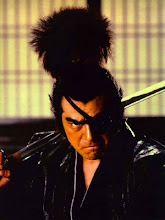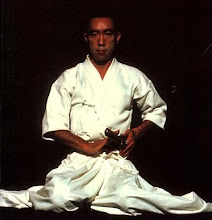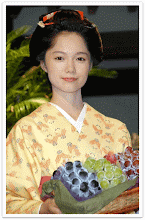We naturally support our home US National Teams when they play but when they don't we support Japan. 日本 がんばれ!
Saturday, July 28, 2012
Thursday, July 26, 2012
日本 がんばれ! Japan's Olympic Teams Impressive Start
In the span of 24 hours, the Japanese Men's & Women's Teams have opened up the 2012 London Olympics with twin victories. Starting July 25th at City of Coventry Stadium, Nadeshiko Japan took on the Canadian Women's team scoring twice first by Nahomi Kawasumi in the 33rd minute and later by Aya Miyama
in the 44th minute. The final score was Japan 2-1 Canada putting the defending Women's World Cup Champions up on the leader board early for medal contention
And now for the men. Today in Glasgow Scotland, Japan's Samurai Blue once again showed the world the prowess and play of the up and coming skills of the Japanese J-League defeating odds on favorite Spain in an exhilarating fast paced game that no one could predict it's end. Spain suffering a red card and playing with ten men could not let their guard down. The battle for possession kept everyone on their toes. And then it came. Striker Yuki Otsu scored in the first half and maintained the attack until the bitter end. Japan opened up numerous chances but ended with a 1-0 win over the 10-man Spanish squad. If you were betting on Spanish gold, today's defeat at the hand of the Samurai Blue puts this confidence shaker in a psychological place no Spaniard wants to be hurting their chances for the gold medal and the Olympics have only just started. To both Nadeshiko Japan and their male counterparts Samurai Blue, we at American Mishima say がんばれ!
And now for the men. Today in Glasgow Scotland, Japan's Samurai Blue once again showed the world the prowess and play of the up and coming skills of the Japanese J-League defeating odds on favorite Spain in an exhilarating fast paced game that no one could predict it's end. Spain suffering a red card and playing with ten men could not let their guard down. The battle for possession kept everyone on their toes. And then it came. Striker Yuki Otsu scored in the first half and maintained the attack until the bitter end. Japan opened up numerous chances but ended with a 1-0 win over the 10-man Spanish squad. If you were betting on Spanish gold, today's defeat at the hand of the Samurai Blue puts this confidence shaker in a psychological place no Spaniard wants to be hurting their chances for the gold medal and the Olympics have only just started. To both Nadeshiko Japan and their male counterparts Samurai Blue, we at American Mishima say がんばれ!
Labels:
J-league,
London 2012,
Nadeshiko,
Olympics,
Samurai Blue,
Soccer
Monday, July 16, 2012
Sunday, July 15, 2012
一日の画像 - Picture of the Day from Obon 1943
Rare color photograph of young
Japanese-American women at Bon Odori, Obon 1943.
This photo was taken by Takeo Bill
Manbo at Heart Mountain Concentration Camp during the forced Internment of People of Japanese Ancestry in the United States during World War II.
You
can see this photo and others in the book "Colors of Confinement”
by Eric L. Muller.
Labels:
Obon,
Picture of the Day,
一日の画像
Saturday, July 14, 2012
お盆のための日本映画 - Two Films for Obon
Summer is here and with it comes Obon.
For those not familiar with Japanese Culture, Obon is a Buddhist
custom for families to gather and pay honor to one's ancestors and
the recently deceased at family altars and temples. As some of you
may have read our earlier posts on American Mishima, we too have lost
both family and dear friends making this year's Obon more significant
on a very personal level. Two years ago on American Mishima, we
featured Three Films for Obon. This year which has had it's share of
grief to go around we offer you the reader of this blog what we had
earlier attempted to do. As before we have selected two films that
reflect the spirit of this season. We hope you enjoy.
Our first offering is the 1998 film Afterlife known by the Japanese title ワンダフルライフ Wandafuru Raifu or Wonderful Life directed by Hirokazu Koreeda. This is a peculiar low budget film that starts slow and at times looks more like a film students final project than a serious feature film. But before you tune out the story line hooks you in and draws you in. Afterlife is a film in where the plot starts with the recently deceased being sent to some way-station of sorts filmed in some abandoned Tokyo school. Once the deceased arrives they are assigned a case worker who will work with them for the following week. During this week, the deceased are to select one memory that will be made into a short film (made entirely by the caseworkers who also happened to be skilled at movie making) reliving that moment before they can take of their life into the afterlife. Once their film has been screened the deceased disappear into the next existence. Failing to select a memory, the deceased finds them self to remain at the way-station to work as a case worker. All seems routine and pretty mundane for case worker Takashi played by Arata until he is assigned the case of an old man who led one of the dullest lives he had ever witnessed. From day to day the old man went to his office job, said little then returned home to his wife and would go to a park and sit to watch the leaves in silence. Pretty dull so far? Wait! Before the man disappeared he left a note for Takashi revealing both his content for his life and his love for his wife who had earlier passed on.
What happens next is Takashi learns that the old man's wife had a fiancee who was killed during World War II who she would spend her time with him at that very same park bench. Something happens that makes Takashi want to find out who his wife was and see her last memory. What he discovers will not only shock you but changes the whole course of the movie. This movie really makes you think if you could only have one memory of this life time what memory would you choose? Think about it. The concept alone is thought provoking. I absolutely loved the storyline behind this picture. Creative and utterly ingenious and most original! But don't take my word for it. See for yourself!
Our Second film comes from Japan's most
legendary filmmaker of all time Akira Kurosawa in his final film the
1993 Madadayo.
まあだだよ - Madadayo the name comes from a children's game where the children call out Mada kai (are you ready yet?) and the reply is Madadayo - Not ready yet! So what does this have to do with Obon? Everything! Life as in death is full of reflection and what better film to screen than a film that best covers this ideal of life reflection and the summary of one's life. This is a film that is based on the real life Japanese academic and author, Hyakken Uchida (1889–1971). The film starts out in the opening of World War II where Uchida Sensei played by Tatsuo Matsumura announces to his high school students of the all male classroom he has been teaching German language that he was to retire. Uchida Sensei is beloved by all of his students who check on him and his wife as the war progresses. Uchida Sensei's house is completely destroyed during the American Bombings which included the destruction of his beloved study & library and is forced to live with his wife in a small outhouse like shack for shelter.
Shortly after Japan's defeat, Uchida Sensei's former students pool their resources together and rebuild his house. It is during the first year of the American Occupation of Japan that his former students decide to start a tradition of throwing their teacher a birthday party. During this first party you only see grown men mostly in their twenties and early thirties in a fraternal like atmosphere that draws the attention of the American Occupiers. Seeing that these men were throwing a harmless Sapporo filled birthday party for an old man, the Americans leave them be.
The highlight of this first party was that a big glass of beer would be presented to Uchida Sensei where he is cheered on to drink the whole glass in one large gulp to which the retired professor succeeds in doing.
As the years go on the parties grow larger and start to include the wives of all of Uchida Sensei's former students. Soon they bring their children and as time grows on their children grow up to marry and have children of their own who are all brought to Uchida Sensei's birthday parties. Near the film's end there now hundreds of former students and their families that include grandchildren of the first students. Such love and grattitude for one's old Sensei. Isn't that what Obon is all about? Grattitude indeed! It's not lost on us Hakujin. All this makes Uchida Sensei exhausted in his old age reflecting back on the wonderful life he had lived and the children's game he once played called Madadayo. It's a beautiful film full of reflection and appreciation for the mastery of Akira Kurosawa in what some could say was his final gift to the world. Madadayo.
I wish there was a better trailer for Madadayo available but if you can get the gist of this small clip you will want to see this film and enjoy it with your family during Obon. We wish all our departed friends and family the very best and for them to know we are thinking of them and remember them with love and appreciation always.
Labels:
Akira Kurosawa,
Japanese Film,
Obon,
お盆,
邦画
Thursday, July 12, 2012
Another Passing: Actress Isuzu Yamada Dead at 95
For any fan of Akira Kurosawa's films, we at American Mishima regret to announce the passing of legendary Actress Isuzu Yamada at the age of 95. She is best known for her portrayal one of the greatest female villains in Samurai film of all time as the manipulating Asaji - the Lady Macbeth character of Throne of Blood who later became the archetype for the treacherous all time manipulator Lady Kaede in Akira Kurosawa's RAN.
 Isuzu Yamada appeared twice in two Akira Kurosawa films with Toshirō Mifune in The Lower Depths and Throne of Blood. Originally from Osaka, she was born Mitsu Yamada who made her first stage appearance at the age of thirteen in 1930. At one point she was credited with being one of the best actresses of Japan. She went on to appear in many films, television dramas as well the stage. She worked with some of Japan's most influential directors such as Kenji Mizoguchi, Yasujiro Ozu, Mikio Naruse and Kurosawa. Her major movies included "Osaka Elegy" and "Sisters of the Gion" by Mizoguchi and "Nagareru" by Naruse, as well as the great Akira Kurosawa who is better known in the west.
Isuzu Yamada appeared twice in two Akira Kurosawa films with Toshirō Mifune in The Lower Depths and Throne of Blood. Originally from Osaka, she was born Mitsu Yamada who made her first stage appearance at the age of thirteen in 1930. At one point she was credited with being one of the best actresses of Japan. She went on to appear in many films, television dramas as well the stage. She worked with some of Japan's most influential directors such as Kenji Mizoguchi, Yasujiro Ozu, Mikio Naruse and Kurosawa. Her major movies included "Osaka Elegy" and "Sisters of the Gion" by Mizoguchi and "Nagareru" by Naruse, as well as the great Akira Kurosawa who is better known in the west.
 Isuzu Yamada appeared twice in two Akira Kurosawa films with Toshirō Mifune in The Lower Depths and Throne of Blood. Originally from Osaka, she was born Mitsu Yamada who made her first stage appearance at the age of thirteen in 1930. At one point she was credited with being one of the best actresses of Japan. She went on to appear in many films, television dramas as well the stage. She worked with some of Japan's most influential directors such as Kenji Mizoguchi, Yasujiro Ozu, Mikio Naruse and Kurosawa. Her major movies included "Osaka Elegy" and "Sisters of the Gion" by Mizoguchi and "Nagareru" by Naruse, as well as the great Akira Kurosawa who is better known in the west.
Isuzu Yamada appeared twice in two Akira Kurosawa films with Toshirō Mifune in The Lower Depths and Throne of Blood. Originally from Osaka, she was born Mitsu Yamada who made her first stage appearance at the age of thirteen in 1930. At one point she was credited with being one of the best actresses of Japan. She went on to appear in many films, television dramas as well the stage. She worked with some of Japan's most influential directors such as Kenji Mizoguchi, Yasujiro Ozu, Mikio Naruse and Kurosawa. Her major movies included "Osaka Elegy" and "Sisters of the Gion" by Mizoguchi and "Nagareru" by Naruse, as well as the great Akira Kurosawa who is better known in the west.
Isuzu Yamada passed away in Tokyo to multiple organ failure.
She was 95 years old and will be remembered as both a stage and screen Legend of Japan.
すべてのあなたの素晴らしい演奏を どもありがとうございまし!
Labels:
Akira Kurosawa,
Isuzu Yamada,
Throne of Blood
Monday, July 2, 2012
More Reflections
As reposted from Japan Today: Emperor Akihito prays at the altar of his late cousin Prince Tomohito, in Tokyo, on Tuesday. Tomohito, who was sixth in line to the Chrysanthemum Throne, died of cancer at age 66 on June 6.
Subscribe to:
Posts (Atom)


























